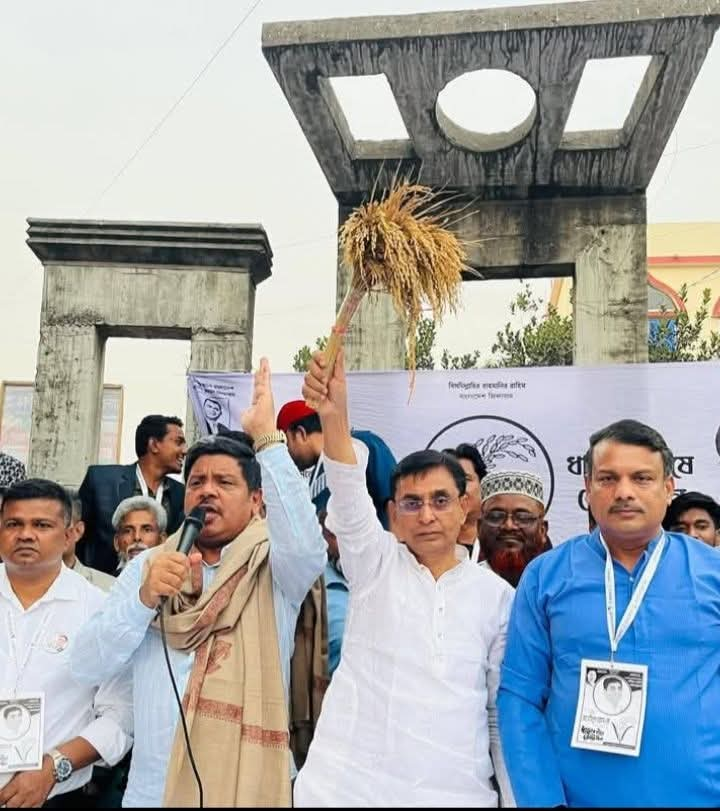
Photo by: Rod Waddington
SPOTLIGHT: YEMEN
Political will, inclusive dialogue are key to ending conflict in Yemen
Sana’a/New York: Yemen is speeding towards the worst famine the world has seen in decades. The United Nations data released last week confirm, yet again, that time is running out. Malnutrition rates are at record highs. About 400,000 children under the age of five are severely malnourished across the country. “These are the children with distended bellies, emaciated limbs and blank stares — starving to death,” Mark Lowcock, Under-Secretary-General for Humanitarian Affairs and Emergency Relief Coordinator, told United Nations Security Council in New York last night (IST). He added that across Yemen, more than 16 million people were going hungry, including 5 million “who are just one step away from famine.”
Welcoming the February 12 decision of the United States to reverse its designation of Ansar Allah as a foreign terrorist organiation under its domestic law, Lowcock underscored Washington, D.C.’s, intention to prioritise diplomacy to end the war in Yemen and deal with the humanitarian crisis.
Still, Ansar Allah (also called Houthi) authorities regularly delay routine processes, attempt to interfere with aid delivery and harass aid agencies and staff in the country. However, on a positive note, In 2020, aid agencies helped more than 10 million people a month, working in every one of Yemen’s 333 districts. Still, that year, In 2020, the $1.9 billion for the aid operation was only about half of what was needed, which forced cuts of many programmes that millions of people need there. The United Nations response plan in 2021 will need about $4 billion, which is on par with what was asked for in 2019.
On the Safer tanker issue too, Ansar Allah (Houthi) authorities had recently announced plans to “review” their approval for the long-planned mission and advised the United Nations to pause some preparations. But they have now dropped this review, making it difficult to say when exactly the United Nations mission might go to the leaking tanker which, with 1.1 million barrels of oil onboard, is threatening to turn into an environmental disaster. However, regarding the Safer tank, the Houthis are obstructing the UN work.
The United States, told the Council last night (IST) that it will continue to enforce sanctions on certain Ansar Allah members. The US is also of the view that the Houthis’ attempted assassination of Yemeni politicians and recent attacks, place them at odds with the people of Yemen, as the new Yemeni government demands the Security Council to investigate the incident against the Yemeni Cabinet at the Aden airport and to bring the perpetrators to account.
Also read: The leaking ‘Safer’ tanker and UN’s frustration
While fresh violence and a worsening humanitarian situation continues to unfold in Yemen, international efforts to work towards peace are finding fragile inroads. The question is that with the the formation of the new coalition Government and a new Cabinet in place, can all Yemeni parties come on board to commence a comprehensive peace process? The new Yemeni government has sought to end the war waged by the Iran-backed Houthis, welcoming United States engagement, including the appointment of its envoy for Yemen.
This is the time when Yemen’s partners should work urgently with the Government to devise a workable programme for foreign-exchange injections in Yemen’s import-dominated economy, and also to take steps to ensure essential commodities can reach the country through all ports.
However, the Yemenese government contend that the Houthis attacked densely populated Marib, with bombardments by ballistic missiles and drones continuing. They also targeted civilian facilities in Saudi Arabia.
“This is occurring as the United Nations works to end the war,” the representative of Yemen told the Security Council.
Martin Griffiths, Special Envoy of the United Nations Secretary-General for Yemen, said the situation in the country has taken a sharp escalatory turn with Ansar Allah’s most recent offensive on Marib Governorate. Reiterating repeated calls that the attack on Marib must stop, he said it puts millions of civilians at risk, especially with the fighting reaching camps for internally displaced persons.
Indeed, the quest for territorial gain by force threatens the prospects of the peace process at a time of worsening conditions, looming famine, fuel shortages and other grave challenges. The military situation is extremely tense, with civilians bearing the brunt of the hostilities in addition to shocking violations of international humanitarian law, worrying spikes of violence and hostilities continue in Hudaydah and Taïz Governorates and alarming cross-border attacks.
“There is a negotiated way out of this conflict, but, in any negotiation, the parties need to know where they are going; they need to clearly see the end‑state,” Griffiths told the UN Security Council, highlighting elements of a mutually acceptable end to the war and a path towards peace. This, according to him, included peaceful political participation, accountable governance, equal citizenship and economic justice.
UN teams are reportedly also concerned over Houthis getting arms from Iran. Till as recently as in the last week of January 2021, Houthi rebels had fired missile at Saudi Arabia which does not see eye to eye with Iran. There had been a global concern as Houthis escalated attacks on Saudi Arabia and in Marib. However, the appointment of a special envoy to help chart a path to peace by the Biden Administration, and its announcement that the United States was ending support to Saudi Arabia, including weapons sales, related to operations in Yemen, looks to be a move forward. The US now calls on the Haithis to cease all violence, including against Saudi Arabia.
Earlier this month Griffiths had visited Tehran for two days and met the Iranian government officials including Iran’s Foreign Minister Javad Zarif as part of UN’s diplomatic efforts to support a negotiated political solution to the conflict in Yemen that meets the aspirations of the Yemeni people. As it is, his immediate priority had been to support agreement between the parties to the conflict on a nationwide ceasefire, urgent humanitarian measures and the resumption of the political process. Griffiths had then exchanged views on Yemen with Zarif and discussed the urgent need to make progress towards a nationwide ceasefire, the opening of Sana’a airport and the easing of restrictions on Hudaydah ports. Following the meetings with Iranian authorities, Griffiths had welcomed the expression of Iran’s support towards the UN’s efforts to end the conflict in Yemen.
After years of conflict, Yemen’s economy has shrunk by more than 50 per cent . Since 2015, about 1 million people have fled to the area to get away from the war in other areas. Shelling now threatens to send hundreds of thousands of people again running for their lives at a time when everyone should be doing everything possible to stop famine.
Lowcock outlined a five-point action plan to avoid famine in Yemen, describing measures related to protection of civilians, humanitarian access, funding for the aid operation, support for the economy and progress towards peace. .
The only way to realise these aspirations is through a genuinely inclusive, Yemeni‑led political process under United Nations auspices and supported by the international community. Through such a political process, Yemenis could negotiate an agreement to end the conflict and bring about sustainable peace.
Such a time-bound agreement should ensure a complete end to the use of violence for political gain and culminating with national elections. During the period of transition, Yemen’s unity, sovereignty, independence and territorial integrity must be respected. The Yemeni people will need guarantees for equal citizenship under the law, including for women and girls, and of humanitarian relief, reconstruction, transitional justice and economic recovery.
None of these elements of an agreement are new though. As Griffiths said, to seize this chance to revitalise the political process, the parties should immediately agree to a ceasefire and agree to economic and humanitarian measures, at a minimum to include ensuring the unhindered flow of commodities through Hudaydah ports, with port revenues put towards civil servant salaries and opening Sana’a airport to commercial traffic. “These measures should maximise humanitarian objectives, while providing appropriate security guarantees in line with Security Council resolutions,” he said.
The ceasefire, Hudaydah ports, and Sana’a airport have long been under negotiation, and mechanisms can be agreed upon. What is needed is political will to end the conflict. An agreement on these issues would offer Yemenis a break from relentless cycles of violence, facilitate movement of people and goods and could create a conducive environment for the parties move to the real issue at hand — inclusive talks to end the war. The political process would need to resume promptly. A nationwide ceasefire will not be sustainable if it is not tied to progress on the political track.
The negotiating table can produce win-win results, Griffiths said, while recalling that the parties had successfully negotiated a large-scale release of prisoners and detainees in 2020. “For the past three weeks, the parties have been meeting again in Amman in an effort to agree on more individuals to release,” he added, urging them to bring this round to a successful conclusion and calling for the immediate and unconditional release of all sick, wounded, elderly and children detainees, as well as all arbitrarily detained civilians, including women and journalists.
– global bihari bureau





